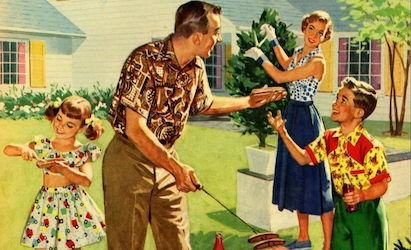
Traditional Institutions. When conservatives refer to “traditional institutions, customs, and values,” they typically mean the established norms and practices that have historically shaped society. Here’s a breakdown of these concepts:
1. Traditional Institutions: This often includes long-standing social structures such as the nuclear family, religious organizations/organized religion, educational systems, and government entities. Conservatives generally value these institutions for providing stability, continuity, and a sense of order.
2. Traditional Customs: These are the inherited conventions, rituals, and social norms that define cultural identity and community behavior. Examples might include holiday celebrations, manners, dress codes, and language. Conservatives often emphasize preserving customs as they are seen as foundational to a cohesive and functioning society.
3. Traditional Values (also called “Family Values”): This refers to the core principles and moral beliefs that guide behavior and decision-making. Commonly cited traditional values include personal responsibility, hard work, respect for authority, patriotism, religious faith, and the importance of family. Conservatives typically believe that these values are essential for individual and communal well-being and should be upheld and passed down through generations.
The conservative perspective often advocates for maintaining and protecting these aspects of society, arguing that they provide a tested framework for stability, ethical conduct, and social cohesion. They may also express concern that rapid changes or erosion in these areas could lead to societal fragmentation and “moral decline.”